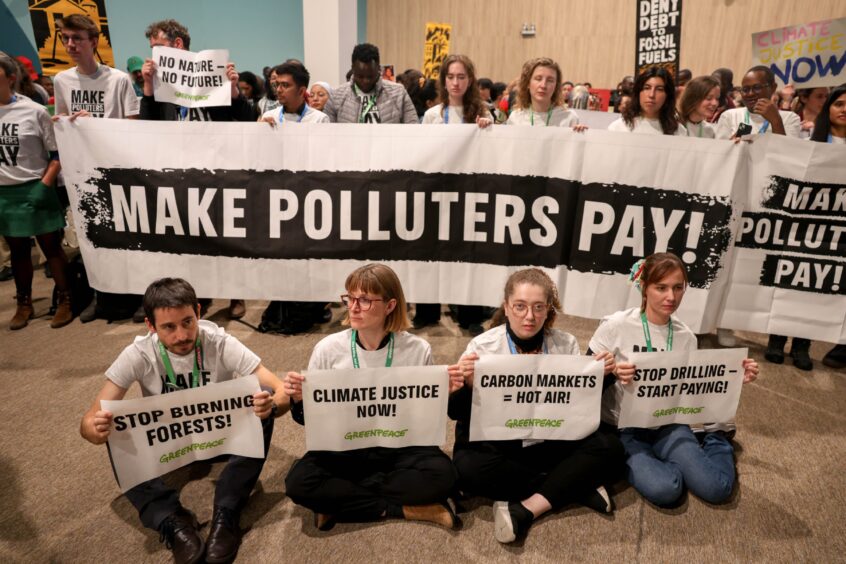
The UK has joined an international coalition to phase out fossil fuel subsidies as negotiations continue at the UN climate summit Cop29 in Azerbaijan.
A total of 16 countries are now part of the Coalition on Phasing Out Fossil Fuel Incentives (COFFIS), which aims to develop national action strategies, remove barriers and facilitate transparency to stop payments linked to oil and gas exploration and production.
Removing subsidies is seen as a key step towards wider commitments on transitioning away from fossil fuels in energy systems agreed by countries at Cop28 in Dubai last year.
World governments previously pledged to phase out inefficient fossil fuel incentives but implementation of these commitments has been slow, with subsidies calculated as reaching a record $1.5 trillion (£1.2tn) globally in 2022, the think tank leading COFFIS, the International Institute for Sustainable Development (IISD), said.
In a statement, UK Energy Secretary Ed Miliband said: “Our mission is to make the UK a clean energy superpower, getting off the rollercoaster of international fossil fuels and switching to homegrown energy in the hands of the British people.
“By joining the Coalition on Phasing Out Fossil Fuel Incentives Including Subsidies, we are showing the UK is back in the climate business and committed to working with partners to tackle this generational crisis.”
The UK pledge comes after UK chancellor of the exchequer Rachel Reeves removed investment allowances but retained a first-year capital and decarbonisation allowance for oil and gas firms.
The coalition, which was launched by the Netherlands at Cop28 in Dubai last year, was established to accelerate the phase-out of domestic fossil fuel subsidies and encourage international cooperation to help maintain a level playing field between countries.
The aim is if countries phase out financial support for fossil fuels this can create room in national budgets to finance the clean energy transition.
Concerns over backsliding on the Cop28 fossil fuel commitment in this year’s negotiations remain following backlash from some oil-rich nations.
The UN conference itself also came under scrutiny after an undercover investigation by Global Witness revealed that one of the chief organisers, Azerbaijan’s deputy energy minister Elnur Soltanov, used the conference to attempt to facilitate new fossil fuel deals..
Speaking at a Cop29 press conference on Tuesday, Sophie Hermans, Dutch minister of climate policy and green growth, said: “None of this is easy.
“I recognise that phasing out fossil fuels is a sensitive and very complex issue, which affects economies, industries and communities around the world.
“However, we must reaffirm our commitment to sustainable energy and to building resilient, low-carbon economies.”
Patricia Fuller, president of IISD said: “Shifting public financial flows from fossil fuels to clean energy will be critical to implement the COP 28 decision to transition away from fossil fuels.”
Recommended for you

